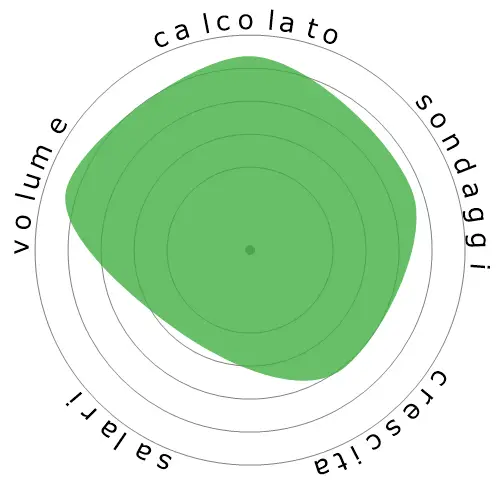Insegnanti di scuola materna, elementare, media, secondaria e di educazione speciale




Le persone hanno anche visualizzato
Rischio di automazione calcolato
Rischio Minimo (0-20%): Le professioni in questa categoria hanno una bassa probabilità di essere automatizzate, poiché richiedono tipicamente la risoluzione di problemi complessi, creatività, forti competenze interpersonali e un alto grado di destrezza manuale. Questi lavori comportano spesso movimenti manuali intricati e una coordinazione precisa, rendendo difficile per le macchine replicare i compiti richiesti.
Ulteriori informazioni su cosa sia questo punteggio e su come viene calcolato sono disponibili qui.
Questa pagina è una pagina di categoria che comprende diverse professioni. Per determinare un punteggio per questa categoria, calcoliamo la media di tutte le professioni al suo interno.
Si prega di fare riferimento alle singole pagine delle professioni per ulteriori informazioni su ciascuna professione inclusa in questa categoria, le potete vedere elencate. qui.
Sondaggio degli utenti
I nostri visitatori hanno votato che c'è una bassa probabilità che questa professione sarà automatizzata. Questa valutazione è ulteriormente supportata dal livello di rischio di automazione calcolato, che stima una possibilità di automazione del 11%.
Cosa pensi sia il rischio dell'automazione?
Qual è la probabilità che Insegnanti di scuola materna, elementare, media, secondaria e di educazione speciale venga sostituito da robot o intelligenza artificiale nei prossimi 20 anni?
Crescita
Si prevede che il numero di offerte di lavoro per 'Preschool, Elementary, Middle, Secondary, and Special Education Teachers' diminuirà 0,1% entro il 2033
Occupazione totale e stime delle offerte di lavoro
Le previsioni aggiornate sono previste per 09-2025.
Salari
Nel 2023, il salario annuo mediano per 'Preschool, Elementary, Middle, Secondary, and Special Education Teachers' era di 63.280 $, o 30 $ all'ora.
'Preschool, Elementary, Middle, Secondary, and Special Education Teachers' hanno ricevuto un salario 31,7% superiore al salario mediano nazionale, che si attestava a 48.060 $
Salari nel tempo
Volume
A partire dal 2023 c'erano 4.261.430 persone impiegate come 'Preschool, Elementary, Middle, Secondary, and Special Education Teachers' negli Stati Uniti.
Questo rappresenta circa il 2,8% della forza lavoro impiegata in tutto il paese
In altre parole, circa 1 su 35 persone sono impiegate come 'Preschool, Elementary, Middle, Secondary, and Special Education Teachers'.
Descrizione del lavoro


Commenti
Leave a comment
plus, the robots might even scare them
Tools like intelligent tutoring systems, virtual reality for immersive learning experiences, and automated administrative tasks can free up educators to focus on more critical aspects of teaching, such as emotional intelligence and critical thinking.
While AI's integration into education could enhance teaching and learning processes, a complete takeover is less about replacement and more about augmentation and partnership between human educators and AI technologies. The future likely holds a blend where AI supports education, enriching the learning experience without fully displacing the human touch that is crucial for student development.
Lascia un commento su questa professione